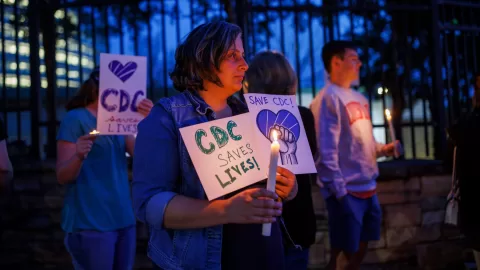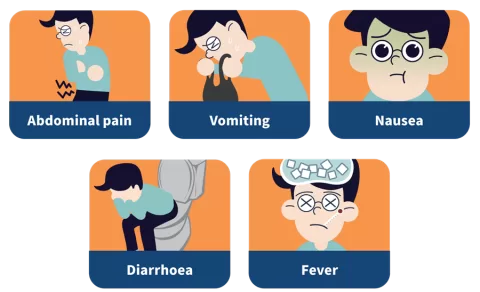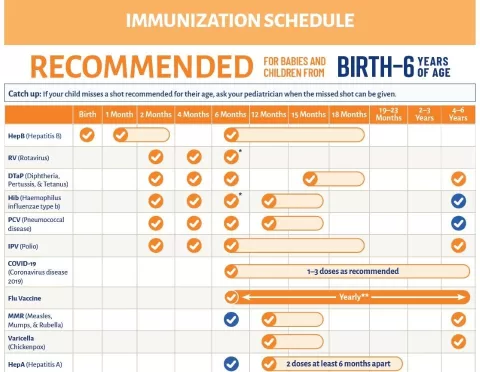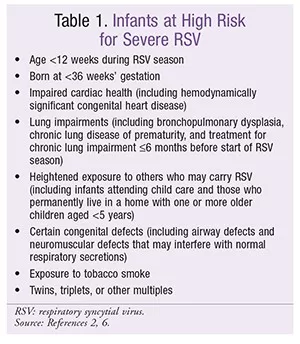Biological weapons investigations play a critical role in understanding the intricate dynamics of infectious disease outbreaks, especially those with uncertain origins. As global health security becomes a pivotal concern, the increasing incidence of ambiguous disease events—whether natural or potentially deliberate—calls for diligent assessment and scrutiny. Under the auspices of the United Nations, investigations into alleged biological attacks are designed to ensure a rapid and competent response to any threats posed by biological agents. The recent establishment of enhanced investigation mechanisms highlights the international community’s commitment to maintaining vigilance against biological weapons, while also fostering disease outbreak readiness. By focusing on thorough assessments of potential biological attacks, we not only fortify our defenses but also uphold the integrity of global health initiatives.
Exploring the realm of inquiries into biological threats raises awareness about the urgent need for coordinated international response strategies. These investigations, often referred to as biological threat assessments or pathogen origin inquiries, encompass a variety of actions aimed at clarifying whether outbreaks stem from natural, accidental, or malicious sources. Given the heightened apprehension around global health safety, robust mechanisms for investigating allegations of bioweapons use are imperative. With terms like biological attack evaluation and disease outbreak investigation blending into the dialogue, the focus remains firmly on fostering resilience against any potential threats. Such efforts not only bolster public health systems but also align with wider initiatives advocating for enhanced security against bioterrorism.
Understanding Biological Weapons and Investigations
Biological weapons, defined as microorganisms or toxins designed to cause illness or death in humans, animals, or plants, pose serious threats to global health security. The use of such agents is strictly prohibited under international law, yet there are still significant concerns regarding their potential deployment, particularly in conflict zones. Investigations into alleged uses of these weapons are crucial for public safety and national security. Such investigations often require an immediate response from international organizations like the United Nations (UN), which has established mechanisms to assess these claims.
The intricate nature of biological weapons investigations includes evaluating the origins of disease outbreaks that could potentially signal a deliberate attack. The recent rise in suspicious disease outbreaks, accentuated by geopolitical tensions, necessitates an agile and effective investigative framework. The UN’s Secretary-General’s Mechanism works within this context, aiming to provide an objective assessment of allegations related to biological weapon use. This framework not only ensures the integrity of investigations but also fosters global cooperation in dealing with potential biological threats.
The Role of UN Investigations in Biological Threat Assessment
United Nations investigations play a critical role in addressing allegations of biological weapons use, particularly amid increasing global tensions and the complex landscape of misinformation. The UN Secretary-General’s Mechanism allows independent bodies to conduct thorough investigations of suspected biological attacks, thereby reinforcing international norms against the use of such weapons. This mechanism helps establish whether an outbreak is of natural origin or suggests malicious intent, thereby informing a coordinated global response.
The process of UN investigations typically involves various stages, including preliminary assessments, field investigations, and analyses of findings. During these investigations, the collaborative efforts among member states enhance the overall readiness to respond to potential biological threats. Investing in global health security through enhanced investigative capabilities not only improves response times to outbreaks but also builds trust among nations regarding the transparency of biological weapon allegations.
Enhancing Disease Outbreak Readiness through Training
Preparedness for biological attacks or disease outbreaks goes beyond mere policy; it requires practical training and realistic exercises. The UN’s engagement in training sessions, such as those conducted in response to the challenges posed by the COVID-19 pandemic, highlights the necessity for continuous improvement in response strategies. These exercises focus on equipping teams with the necessary skills and knowledge to identify, assess, and manage the complexities of biological threats, thus ensuring that health systems are not caught off-guard.
Furthermore, training programs emphasize the importance of interdisciplinary collaboration among health officials, law enforcement, and military personnel. The insights gained from simulated exercises provide valuable information for refining operational protocols and command structures. By fostering a culture of readiness and resilience based on shared learning experiences, international bodies can effectively prepare for and mitigate the risks associated with biological weapons.
Global Health Security and Biological Attack Assessment
Global health security is an essential aspect of preventing and mitigating the effects of biological attacks and disease outbreaks. It involves a comprehensive approach that integrates surveillance, response strategies, and international cooperation. The recent initiatives under the United Nations aim to bolster this framework, recognizing that no single nation can address these challenges alone. By fostering a collaborative environment that encompasses various stakeholders, from government agencies to healthcare providers, global health security can be significantly enhanced.
Biological attack assessments are vital components of this security framework. They involve evaluating the risk factors associated with potential biological threats and developing strategies for response. Regular assessments ensure that all countries are prepared for unexpected outbreaks, while also enhancing collective capabilities to counteract threats. Moreover, the relationship between health security and the enforcement of bans on biological weapons fosters a proactive approach to managing public health crises.
Lessons from Recent Investigations on Biological Weapons
Lessons learned from recent investigations into allegations of biological weapons usage underscore the importance of clear communication and coordinated response efforts. The findings from various training exercises directly inform global health practices and contribute to the development of refined investigative protocols. Such lessons are invaluable, particularly as they highlight the need for precise technological tools and reliable methodologies for evidence gathering during investigations.
The case studies derived from previous investigations also reveal key areas that could benefit from continuous improvement, such as enhanced sampling techniques and the importance of media strategy during outbreaks. These insights not only help refine the processes involved in dealing with potential biological threats but also build confidence within the international community regarding the transparency and effectiveness of investigations.
International Collaboration in Biological Weapons Investigations
Collaboration among international agencies is fundamental to effectively tackling the challenges posed by biological weapons. The intertwined nature of disease outbreaks and biological attacks necessitates a unified approach, one in which health authorities, governments, and international organizations work hand-in-hand. The UN’s framework for investigating biological weapons allegations exemplifies the collaborative spirit needed to navigate these complex scenarios, ensuring that investigations are thorough and credible.
Additionally, fostering relationships between nations that emphasize joint exercises and shared information bolsters preparedness and response capabilities. This international collaboration is vital in addressing not only biological threats but also enhancing overall public health infrastructures. By preparing together for potential outbreaks or attacks, nations can collectively enhance their resilience against biological weapons.
The Importance of Transparency in Biological Investigations
Transparency is essential in maintaining public trust and ensuring the efficacy of investigations into biological weapon use. When allegations arise, they must be addressed with clarity and openness to dispel misinformation and restore confidence among affected populations. The role of the UN Secretary-General’s Mechanism illustrates the commitment to conducting impartial investigations, thereby ensuring accountability and adherence to international laws banning biological weapons.
Moreover, transparency in communication about findings and ongoing efforts allows for informed public discourse. By keeping the global community updated on investigational processes and results, the potential for panic or misinformation diminishes. Such practices are crucial in managing health security concerns, particularly in a landscape where allegations of biological attacks can prompt widespread fear and unrest.
Addressing Misinformation During Investigations
In today’s world, the spread of misinformation can significantly hamper the response to biological threats and investigations into their causes. The relationship between biological attack assessments and the communication of facts is critical; as misinformation proliferates, the integrity of actual investigations is put at risk. The UN and affiliated health organizations must therefore develop robust communication strategies that not only focus on transparency but also proactively combat the spread of false narratives.
An effective strategy includes engaging with communities at risk, providing accurate information, and fostering trust-based relationships between health authorities and the public. This approach is increasingly vital in contexts of heightened suspicion regarding biological weapons. By equipping communities with knowledge, officials can help mitigate the immediate repercussions of any disease outbreak while facilitating more effective investigations into their origins.
Advancing Global Policies on Biological Weapons
Advancing global policies regarding biological weapons and investigations is essential to preemptively address potential threats. By fostering international agreements and strengthening existing conventions, countries can create a unified front against the use of biological agents. The active participation of nations in developing comprehensive policies that outline procedures for addressing biological attacks is crucial for enhancing global health security.
Policy advancements should also focus on implementing effective monitoring and enforcement mechanisms. These frameworks should encompass a wide range of actors and leverage advances in technology for early detection and response. As biological weapons evolve, so too must the international legal frameworks designed to prevent their use, ensuring they remain relevant and effective in mitigating risks posed by future outbreaks.
Frequently Asked Questions
What are biological weapons investigations and why are they important?
Biological weapons investigations are processes aimed at determining the intentional use of biological agents as weapons, which is crucial for global health security. These investigations help prevent misinformation and enhance disease outbreak readiness by identifying whether outbreaks are natural, accidental, or deliberate.
How does the UN support biological weapons investigations?
The United Nations supports biological weapons investigations through the United Nations Secretary-General’s Mechanism for Investigation of Alleged Use of Chemical or Biological Weapons. This mechanism allows for independent and thorough investigations into allegations of biological attacks, ensuring international accountability and adherence to the Biological Weapons Convention.
What challenges are faced in biological weapons investigations?
Biological weapons investigations face challenges such as distinguishing between natural outbreaks and purposeful biological attacks, especially in conflict settings. Information manipulation and geopolitical tension may complicate these investigations, requiring enhanced training and operational readiness.
How do disease outbreak readiness and biological weapons investigations relate?
Disease outbreak readiness and biological weapons investigations are interconnected as both focus on preparing for and effectively responding to health emergencies. Enhanced readiness ensures that health authorities can quickly and accurately assess the source of outbreaks, whether they are natural or the result of a biological attack.
What is the role of exercising and training in improving biological weapons investigations?
Training and exercises, such as those conducted by the UNSGM, play a vital role in improving the readiness and effectiveness of biological weapons investigations. These simulations help identify key operational areas for improvement, such as sampling techniques and media management, ultimately strengthening the investigation framework.
How do international norms against biological weapons impact investigations?
International norms against biological weapons, established by treaties like the 1972 Biological and Toxin Weapons Convention, guide investigations into alleged uses of biological agents. Upholding these norms is essential for maintaining global health security and the credibility of investigations into biological weapons use.
What lessons have been learned from past biological weapons investigations?
Past biological weapons investigations have highlighted the importance of coordinated planning, effective command-and-control procedures, and the need for fit-for-purpose equipment. Continuous improvement is necessary to enhance investigation capabilities in the face of evolving threats and misinformation.
Why is independent evidence gathering important in biological weapons investigations?
Independent evidence gathering is critical in biological weapons investigations as it helps ensure objective, unbiased findings. This capability fosters trust among member states, supports accountability, and bolsters confidence in the international community’s commitment to combating biological weapons.
What implications do geopolitical tensions have on biological weapons investigations?
Geopolitical tensions can lead to increased scrutiny and suspicion regarding disease outbreaks, potentially resulting in allegations of deliberate biological attacks. Investigations must navigate these tensions while maintaining scientific integrity and transparency to address concerns effectively.
What steps can be taken to improve biological weapons investigation processes?
Improving biological weapons investigation processes involves enhancing training for investigators, refining sampling methods, and developing better strategies for communication during crises. Additionally, ongoing exercises and drills can strengthen operational readiness and response capabilities.
| Key Points |
|---|
| Investigations of disease outbreaks often lead to speculation on deliberate biological attacks. |
| Recent outbreaks (e.g., Legionnaires’ in Poland, Ebola in Uganda) were determined to be natural. |
| The UN Secretary-General’s Mechanism (UNSGM) allows for independent investigations of biological weapon allegations. |
| UNSGM’s readiness was assessed in October 2022, indicating preparedness for suspicious outbreak investigations. |
| Tabletop and field exercises have highlighted areas for improvement, including training and equipment needs. |
| Geopolitical tensions can exacerbate allegations of biological weapons due to misinformation and speculations. |
Summary
Biological weapons investigations are critical in ensuring that claims of intentional harm are addressed with the necessary rigor and independence. As we navigate a world of increased geopolitical tensions, awareness of how alleged biological weapon use is investigated is vital. The UN Secretary-General’s Mechanism must be continuously strengthened to support efficient responses to ambiguous disease outbreaks, reassuring nations of their commitment to counter biological threats.
The content provided on this blog (e.g., symptom descriptions, health tips, or general advice) is for informational purposes only and is not a substitute for professional medical advice, diagnosis, or treatment. Always seek the guidance of your physician or other qualified healthcare provider with any questions you may have regarding a medical condition. Never disregard professional medical advice or delay seeking it because of something you have read on this website. If you believe you may have a medical emergency, call your doctor or emergency services immediately. Reliance on any information provided by this blog is solely at your own risk.








